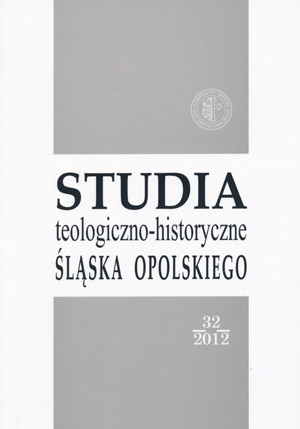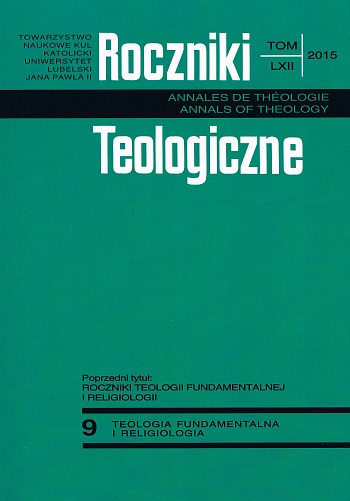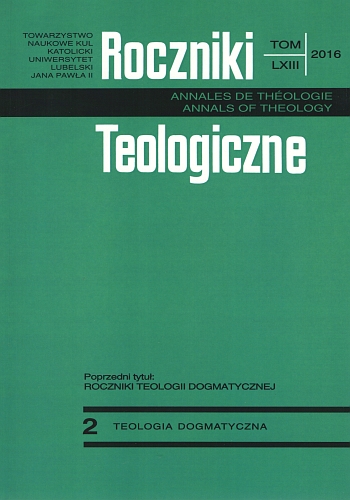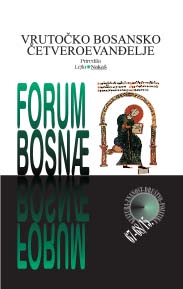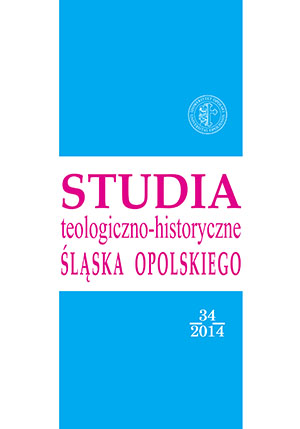
Relacja między wiarą a miłością w encyklice papieża Franciszka Lumen fidei
Relationship between faith and love is direct. Pope Francis states that aforementioned theological virtues are one. Cognition, so characteristic to fate, reaches fullness due to perfect expression of love – redemption. The Bishop of Rome’s insights about divine grace and God’s love in relation between faith and mind are remarkable. Looking at Lumen fidei with personalistic view may reveal that Pope Francis presents faith as human’s answer for God’s invitation to internal metamorphosis. Repentance assumes donning in love by imitation of Christ. Cognition of fate is possible mainly due to love which is closely tied to mind. Following religious observances and love vastly contributes to increase in common good. Discovery of truth about love allows one to overcome relativism. In Christological dimension, the most important issue in relationship between faith and love is redemption which manifests God’s love for mankind and shows fullness of cognition of faith. Faith and love make possible for mankind to look at themselves and the surrounding world in the same way as Christ. Leading one’s live in spirit of aforementioned theological virtues is imitating Jesus. In ecclesiastic view, examining relationship between faith and love is an agape theological argument for Christian Revelation’s reliability. It is connected with testimonia vitae which shows in the best possible way the degree the practise of faith and love. The Pope emphasises sacramental aspect of fate.
More...
